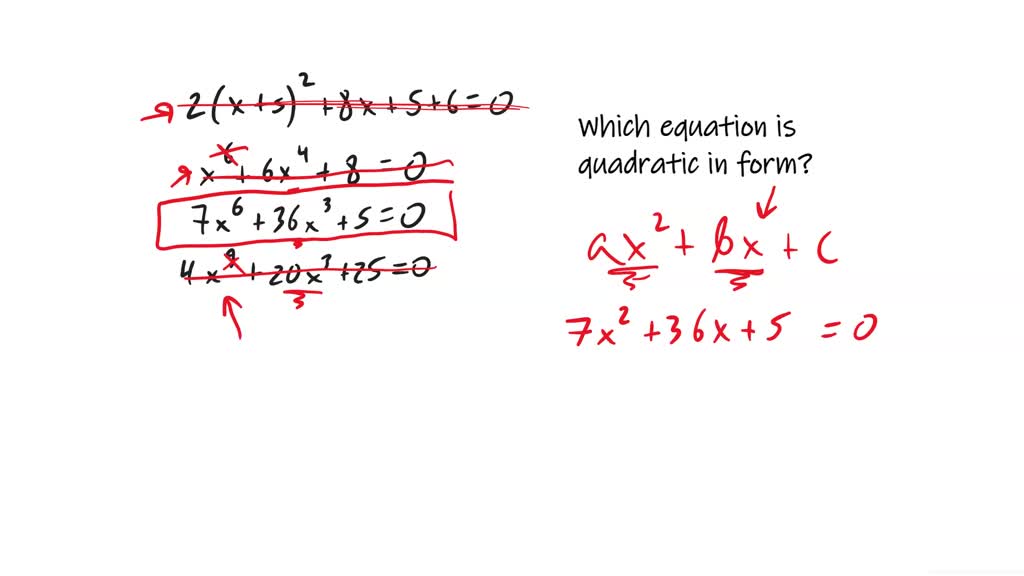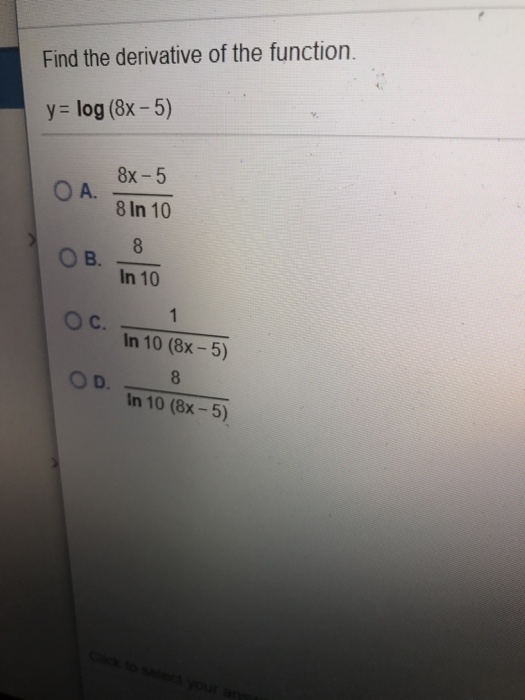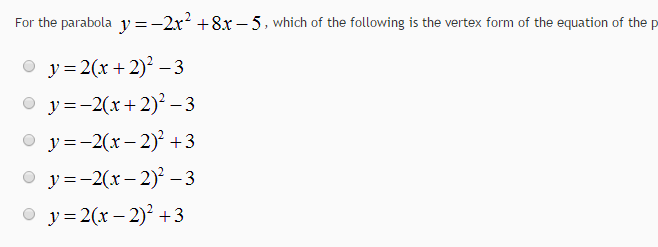
Write quadratic equation y = -2x^2 + 8x -5 in vertex form. Name vertex and axis of symmetry - YouTube

SOLVED: Which equation is quadratic in form? 2(x + 5)^2 + 8x + 5 + 6 = 0 x^6 + 6x^4 + 8 = 0 7x^6 + 36x^3 + 5 = 0 4x^9 + 20x^3 + 25 = 0

5.7 – Completing the Square. Completing the square Easy case x² + 8x – 5 = 9 x² + 8x – 5 = 9 x² + 8x = 14 x² + 8x + 16 = (x+4)² = 30 (x+4) = ±√ ppt download
If α and β are roots of the equation [math]x^2+8x-5=0[/math], then what is the quadratic equation whose roots are α/β and β/α? - Quora
![Solved: The rectangle below has an area of 8x^5+12x^3+20x^2. The width of the rectangle is equal [geometry] Solved: The rectangle below has an area of 8x^5+12x^3+20x^2. The width of the rectangle is equal [geometry]](https://p16-ehi-va.gauthmath.com/tos-maliva-i-ejcjvp0zxf-us/3f7af396c3004ec8a0332da7dd1e427b~tplv-ejcjvp0zxf-webp.webp)
Solved: The rectangle below has an area of 8x^5+12x^3+20x^2. The width of the rectangle is equal [geometry]






![What is the average value on the function f(x)=4x^(2)-8x+5 on the interval [-1,2]? | Socratic What is the average value on the function f(x)=4x^(2)-8x+5 on the interval [-1,2]? | Socratic](https://useruploads.socratic.org/aXYzmTeeTHWBeseUpgvs_graph33.jpg)
![Let f(x)={∣∣4x2−8x+5∣∣[4x2−8x+5] if 8x2−6x+1≥0 if 8x2−6x+1<0 where [α.. Let f(x)={∣∣4x2−8x+5∣∣[4x2−8x+5] if 8x2−6x+1≥0 if 8x2−6x+1<0 where [α..](https://static-images.findfilo.com/classroom/1674322924032_dqsmwjdm_1401534.jpg)








![MCQ] A Quadratic polynomial, product & sum of zeroes are 5 and 8 MCQ] A Quadratic polynomial, product & sum of zeroes are 5 and 8](https://d1avenlh0i1xmr.cloudfront.net/8922682c-028a-4d45-aeac-44f0422964fd/question-3.jpg)

